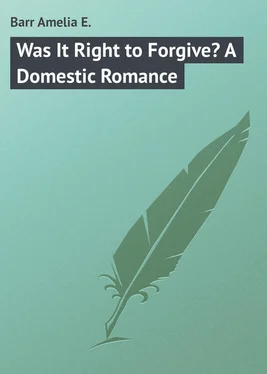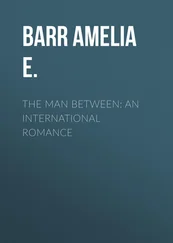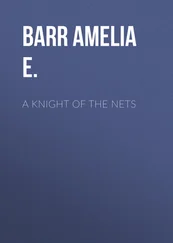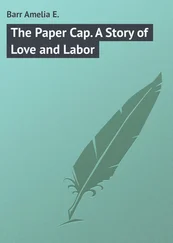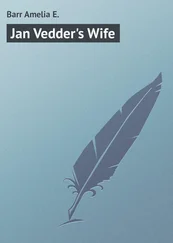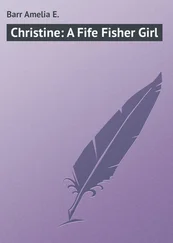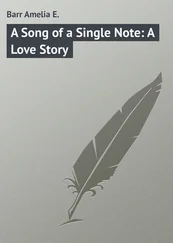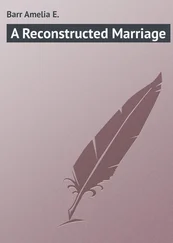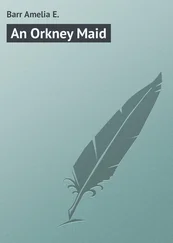Amelia Barr - Was It Right to Forgive? A Domestic Romance
Здесь есть возможность читать онлайн «Amelia Barr - Was It Right to Forgive? A Domestic Romance» — ознакомительный отрывок электронной книги совершенно бесплатно, а после прочтения отрывка купить полную версию. В некоторых случаях можно слушать аудио, скачать через торрент в формате fb2 и присутствует краткое содержание. ISBN: , Жанр: foreign_prose, на английском языке. Описание произведения, (предисловие) а так же отзывы посетителей доступны на портале библиотеки ЛибКат.
- Название:Was It Right to Forgive? A Domestic Romance
- Автор:
- Жанр:
- Год:неизвестен
- ISBN:http://www.gutenberg.org/ebooks/33195
- Рейтинг книги:4 / 5. Голосов: 1
-
Избранное:Добавить в избранное
- Отзывы:
-
Ваша оценка:
- 80
- 1
- 2
- 3
- 4
- 5
Was It Right to Forgive? A Domestic Romance: краткое содержание, описание и аннотация
Предлагаем к чтению аннотацию, описание, краткое содержание или предисловие (зависит от того, что написал сам автор книги «Was It Right to Forgive? A Domestic Romance»). Если вы не нашли необходимую информацию о книге — напишите в комментариях, мы постараемся отыскать её.
Was It Right to Forgive? A Domestic Romance — читать онлайн ознакомительный отрывок
Ниже представлен текст книги, разбитый по страницам. Система сохранения места последней прочитанной страницы, позволяет с удобством читать онлайн бесплатно книгу «Was It Right to Forgive? A Domestic Romance», без необходимости каждый раз заново искать на чём Вы остановились. Поставьте закладку, и сможете в любой момент перейти на страницу, на которой закончили чтение.
Интервал:
Закладка:
In another hour Adriana was at home, going through her own sweet, spotless rooms, with that new, delightful sense of possession that makes home-coming worth going from home to experience. There was only one servant in Peter’s house – a middle-aged woman, whose husband had been killed in Peter’s quarry; but she had the Dutch passion for cleanliness, and the very atmosphere of the house was fresh as a rose – the windows all open to the sunshine, the white draperies blowing gently in the south breeze, and every article of furniture polished to its highest point. Yanna ran up and down stairs with a sweet satisfaction. This dwelling, so simple, so spotless, so void of pretenses, was the proper home for a man like Peter Van Hoosen; she could not imagine him in a gilded saloon, with painted flowers and heathen goddesses around him.
They talked a little while, and then Peter went into his garden; and Yanna took out a white muslin dress which required some re-trimming, and sat down with her ribbons and laces, to make it pretty. She was tying bows of blue ribbons into coquettish shapes, singing as she did so, when she heard a quick footstep on the gravel. She drew aside the fluttering curtain and looked out. A stranger was at the doorstep – was coming through the hall – was actually opening the parlor door as she rose from her chair with the ribbons in her hand. He did not wait for her to speak. He took her in his arms, and said:
“Oh, Yanna! Yanna! Where is father?”
Then she knew him. “Antony! My brother Antony!” she cried. “Oh, how glad I am to see you! Oh, how glad father will be to see you! Come, let us go to him. He is in the garden.”
This unexpected visit threw the Van Hoosen household into a state of the most joyful excitement; for around this youngest of his sons, Peter had woven all the poetry that is sure to be somewhere hidden in a truly pious heart. He was very proud of Antony, for he had accomplished the precise thing which would have been impossible to Peter. Antony’s life had been one of constant peril, and his father was accustomed to think of him as heavily armed, and fleetly mounted, and riding for his life. The glamour of western skies, the romance and mystery of the Great Plains, the hand to hand bravery of defending forts from Indians – these, and many other daring elements, had woven themselves about the young man’s struggle for wealth, and invested him with an unusual interest.
So unusual that Peter thought it no sin, on this “eve of the Sabbath,” to break his general custom of private meditation, and listen to the tale of life his son had to tell him. For it was full of strange providences, and Peter was not slow to point them out. And though Antony was reticent on spiritual experiences that were purely personal, his father understood that in those vast lonely places he had heard a Voice , that never again leaves the heart that hears it.
There was a fine sincerity, a sincerity like that of light, in Antony’s nature; his moral sense was definite, his words were truthful; he was another Peter Van Hoosen transplanted into larger atmospheres, and nourished in tropical warmth. Speaking physically, 42 he was not handsome; speaking morally, he was very attractive. His fine soul erected his long spare form, gave the head its confident poise, made the face luminous, and the step firm and elastic. It was like breathing in a high atmosphere to be with him; for he shared himself with his fellows, and poured his life freely into other lives. Was it, then, any wonder that Peter and Yanna gave themselves entirely, that first happy day of reunion, to a son and a brother, so lovable and so attracting?
There was no wonder, either, that in the cool of the evening, Yanna – with a conscious pride in her brother’s appearance – asked him to walk to the post-office with her. She wished to experience some of that pleasant surprise which his reappearance in his native village was likely to make. But the girls she hoped to meet thought Antony was “one of the Yorkers from Filmer’s place,” and they kept on the other side of the street. Not always do our ships go by in the night; sometimes we see them pass in the daytime, and are too proud, or too careless, to hail them. One of these girls had been a dream in Antony’s heart for years; he had really thought of wooing her for his wife. But she was envious of Yanna, and passed on the other side, and fortune did not follow, nor yet meet her, ever again.
Because the next day was the Sabbath, there was no visiting nor receiving of visits in Peter’s house; though the young man was recognized at church, and welcomed by many of his old acquaintances. And early Monday morning Yanna began to expect Rose. She looked forward to her visit, and kept Antony by her side on many pretenses, until the day became too warm to hope longer. Then she wrote to Rose a 43 letter, and, in the cool of the afternoon, Antony went with her to post it. They were walking slowly down the locust-shaded street, and talking of the girl whom Antony had thoughts of wooing, when Harry, driving Rose, turned into the street a hundred yards behind them. Instantly, both were aware of Yanna and her strange escort.
“Do you see that?” asked Rose, with a wondering intensity. “Now, who can he be?”
“How should I know?” answered Harry – and he drew the reins, and made the horses keep the distance. He had himself received a severe check; he did not know whether he wished to proceed or to turn back.
“Yanna never told me about him.”
“Girls never do tell all . Will you now call on Miss Van Hoosen?”
“Why not?”
“You might be the one not necessary.”
“Indeed, I shall call. I told Yanna I would see her to-day. I shall not break my word, for any man. I dare say he is one of her father’s builders, or architects, or – some one of that kind. I do wonder if Yanna is deceitful!”
“All girls are deceitful.”
“They walk humbly after the men, in that rôle, Harry. Drive a mile up the road; then, as we return, we can pass Mr. Van Hoosen’s house. If Yanna is at home, I shall see it, or know it, or feel it; and that fellow will doubtless have been left outside somewhere.”
“That fellow,” however, with Yanna at his side, was on the doorstep to welcome Harry and Rose. He lifted Rose like a feather-weight from the dog-cart, 44 and he was ready with outstretched hand, when Yanna said, “This is my brother Antony.” The “brothership” was such a relief to Harry that it made him most unusually friendly and gay-tempered; and Rose readily adopted the same tone. They sat down on the piazza, behind the flowering honeysuckles, and amid broken little laughs and exclamations, grew sweetly, and yet a little proudly, familiar. After a short time, however, Rose said she “wanted to speak to Yanna very particularly.” Then the girls went into the parlor; and the two young men lit their cigars, and walked through the garden to smoke, and to find Peter; but both, moved by the same impulse, made the same involuntary pause before the open window at which Rose and Yanna sat. Their faces were eager and serious, their hands dropped, their attitudes had the perfect grace of nature; they were beautiful, and the more so because they were unconscious of it. Rose was just saying to Yanna, as Harry and Antony glanced at them:
“Dick has written again to me, Yanna. I had a letter from him this morning.”
“Is he not impertinent?”
“He is anxious and miserable. I fear I shall have to see him.”
“If you fear it, you certainly ought not to see him.”
“He says he is coming to Woodsome. Yanna, why did you never tell me about this wonderful brother of yours?”
“I have not seen him since I was a little girl. I did not expect ever to see him again. His coming was a perfect surprise.”
Читать дальшеИнтервал:
Закладка:
Похожие книги на «Was It Right to Forgive? A Domestic Romance»
Представляем Вашему вниманию похожие книги на «Was It Right to Forgive? A Domestic Romance» списком для выбора. Мы отобрали схожую по названию и смыслу литературу в надежде предоставить читателям больше вариантов отыскать новые, интересные, ещё непрочитанные произведения.
Обсуждение, отзывы о книге «Was It Right to Forgive? A Domestic Romance» и просто собственные мнения читателей. Оставьте ваши комментарии, напишите, что Вы думаете о произведении, его смысле или главных героях. Укажите что конкретно понравилось, а что нет, и почему Вы так считаете.
